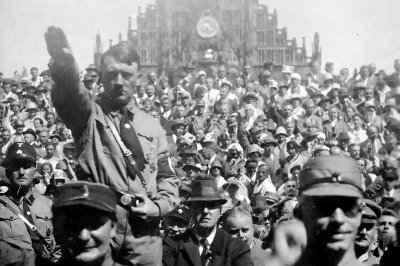Topic: Charles de Talleyrand
Charles Maurice de Talleyrand-Périgord, 1st Prince de Bénévente (French pronunciation: ; 2 February 1754 – 17 May 1838) was a French diplomat. He worked successfully from the regime of Louis XVI, through the French Revolution and then under Napoleon I, Louis XVIII, Charles X, and Louis-Philippe. Known since the turn of the 19th century simply by the name Talleyrand, he remains a figure that polarizes opinion. Some regard him as one of the most versatile, skilled and influential diplomats in European history, and some believe that he was a traitor, betraying in turn, the Ancien Régime, the French Revolution, Napoleon, and the Restoration.
Talleyrand was born into an aristocratic family in Paris. A congenital leg limp left him unable to enter the expected military career and caused him to be called later le diable boiteux (French for "the lame devil") among other nicknames. Deprived of his rights of primogeniture by a family council, which judged his physical condition incompatible with the traditional military careers of the Talleyrand Counts of Périgord, he was instead directed to an ecclesiastic career. This was considerably assisted and encouraged by his uncle Alexandre Angélique de Talleyrand-Périgord, then Roman Catholic Archbishop of Reims. It would appear that the family, while prestigious and ancient, was not particularly prosperous, and saw church positions as a way to gain wealth. He attended the Collège d'Harcourt and seminary of Saint-Sulpice until the age of 21. He was ordained a priest in 1779. In 1780, he became a Catholic-church representative to the French Crown, the Agent-General of the Clergy. In this position, he was instrumental in drafting a general inventory of church properties in France as of 1785, along with a defence of "inalienable rights of church", a stance he was to deny later. In 1789, because of the influence of his father and family, the already notably non-believing Talleyrand was appointed Bishop of Autun.
In the Estates-General of 1789, he represented the clergy, the First Estate. During the French Revolution, Talleyrand supported the revolutionary cause. He assisted Mirabeau in the secularisation of ecclesiastical properties. He participated in the writing of the Declaration of the Rights of Man and proposed the Civil Constitution of the Clergy that nationalised the Church, and swore in the first four constitutional bishops, even though he had himself resigned as Bishop following his excommunication by Pope Pius VI. Notably, he promoted the public education in full spirit of the Enlightenment. He celebrated the mass during the Fête de la Fédération on 14 July 1790.
It uses material from the Wikipedia article "Charles de Talleyrand."





